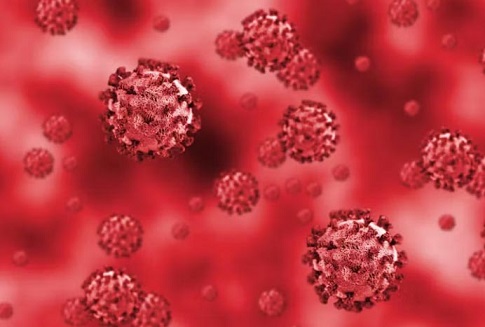Nikhil Prasad Fact checked by:Thailand Medical News Team Aug 20, 2024 1 year, 4 months, 1 week, 4 days, 1 hour, 50 minutes ago
Medical News: Recent research led by scientists from Southeast University, Jiangsu Province People’s Hospital, and Nanjing University in China has uncovered a significant breakthrough in understanding the underlying mechanisms that contribute to the severity of COVID-19. This
Medical News report delves into the fascinating study that identifies specific plasma metabolites as key mediators in the immune response to severe COVID-19 (sCOVID-19). These study findings could enhance the accuracy of COVID-19 prognostic evaluations.
 New insights into the role of plasma metabolites in severe COVID-19
Unveiling the Immune Response and Plasma Metabolites
New insights into the role of plasma metabolites in severe COVID-19
Unveiling the Immune Response and Plasma Metabolites
COVID-19 has posed unprecedented challenges to global health, primarily due to its rapid transmission and severe outcomes in a subset of patients. While most individuals experience mild symptoms, others progress to severe or critical conditions characterized by acute respiratory distress syndrome (ARDS) and other life-threatening complications. This variability in disease severity has spurred extensive research into the immune mechanisms that dictate disease progression.
The immune system's response plays a crucial role in determining the severity of COVID-19. In severe cases, this response can become dysregulated, leading to excessive inflammation and tissue damage. Scientists have long sought to understand the factors that drive this dysregulation. In this study, the researchers used a Mendelian randomization approach to explore the cause-and-effect relationships between immune cell traits and the risk of severe COVID-19. They also examined the potential role of plasma metabolites in modulating this risk.
The Study’s Methodology
To conduct their investigation, the research team utilized data from a genome-wide association study (GWAS) involving over 5,000 cases of severe COVID-19 and more than 1.3 million controls. They analyzed 731 genetic immune cell traits (ICTs) and assessed their causal relationship with the risk of severe COVID-19. Additionally, the study explored the influence of plasma metabolites on these immune traits and their mediation of COVID-19 severity.
The researchers applied Mendelian randomization (MR) techniques to establish the degree to which plasma metabolites regulate immune cell actions in severe COVID-19. This methodology enabled them to identify specific metabolites that are causally linked to either increased or decreased risk of severe disease.
Key Findings: Metabolites That Matter
One of the most significant findings of this study was the identification of two plasma metabolites that play a pivotal role in modulating the immune response to severe COVID-19. The first metabolite, Tridecenedioate (C13:1-DC), was found to regulate the association between a specific immune cell marker, CD27 on IgD- CD38br, and the risk of severe COVID-19. The study revealed that lower levels of Tridecenedioate were associated with an increased risk of severe disease, with this metabolite accounting for 18.7% of the risk modulation.
The second key metabolite identified was the arginine to citrulline ratio, which influenced the relationship between CD39 expression on monocytes and severe COVID-19 risk. Interestingly, a higher arginine to citrulline ratio was associated with a reduced risk of severe disease, with a mediation effect of -7.11%.
These findings underscore the importance of the plasma metabolome in shaping the immune response to COVID-19. The study suggests that certain metabolites may either exacerbate or mitigate the severity of the disease by influencing immune cell function.
The Role of Immune Cells in COVID-19 Severity
The research also shed light on the intricate role of immune cells in COVID-19. The study identified six immune cell traits that were causally linked to the risk of severe COVID-19. Among these, some traits were associated with a reduced risk of severe disease, while others were linked to an increased risk.
For instance, higher expression levels of CD27 on IgD- CD38br cells and CD4+ absolute cell counts (AC) were associated with a lower risk of severe COVID-19. Conversely, traits such as CD39+ CD8br AC and CD19 on IgD- CD24- were linked to an increased risk. These findings suggest that the immune system's balance between different cell types and their functions plays a critical role in determining disease outcomes.
Implications for COVID-19 Prognosis and Treatment
The study’s findings have significant implications for improving the accuracy of COVID-19 prognosis and developing targeted treatments. By identifying specific metabolites and immune cell traits that influence disease severity, the research provides valuable insights into the mechanisms that drive severe COVID-19. This knowledge could pave the way for new diagnostic tools that can predict which patients are at higher risk of severe outcomes.
Moreover, the identification of key metabolites involved in the disease process opens up potential avenues for therapeutic intervention. For example, strategies aimed at modulating the levels of Tridecenedioate or optimizing the arginine to citrulline ratio could be explored as potential treatments to reduce the severity of COVID-19 in high-risk patients.
Expanding Our Understanding of COVID-19 Pathogenesis
This study represents a significant step forward in our understanding of COVID-19 pathogenesis. By elucidating the complex interactions between the immune system and plasma metabolites, the research offers a more comprehensive view of the factors that contribute to severe disease. The findings also highlight the importance of considering both genetic and metabolic factors when assessing COVID-19 risk and developing therapeutic strategies.
Conclusions
In conclusion, this groundbreaking study has identified specific plasma metabolites that mediate the immune response to severe COVID-19. The research demonstrates that these metabolites play a crucial role in modulating the risk of severe disease, either by enhancing or mitigating immune cell actions. The insights gained from this study could significantly enhance the accuracy of COVID-19 prognostic evaluations and inform the development of targeted treatments for those at higher risk of severe outcomes.
The study findings were published in the peer-reviewed journal: Frontiers in Cellular and Infection Microbiology.
https://www.frontiersin.org/journals/cellular-and-infection-microbiology/articles/10.3389/fcimb.2024.1393432/full
For the latest COVID-19 Research, keep on logging to Thailand
Medical News.
Read Also:
https://www.thailandmedical.news/news/cd81-fusion-protein-enhances-sars-cov-2-spike-trafficking-and-immune-response
https://www.thailandmedical.news/news/mir-9-as-a-potential-therapeutic-target-in-combating-severe-covid-19-inflammation
